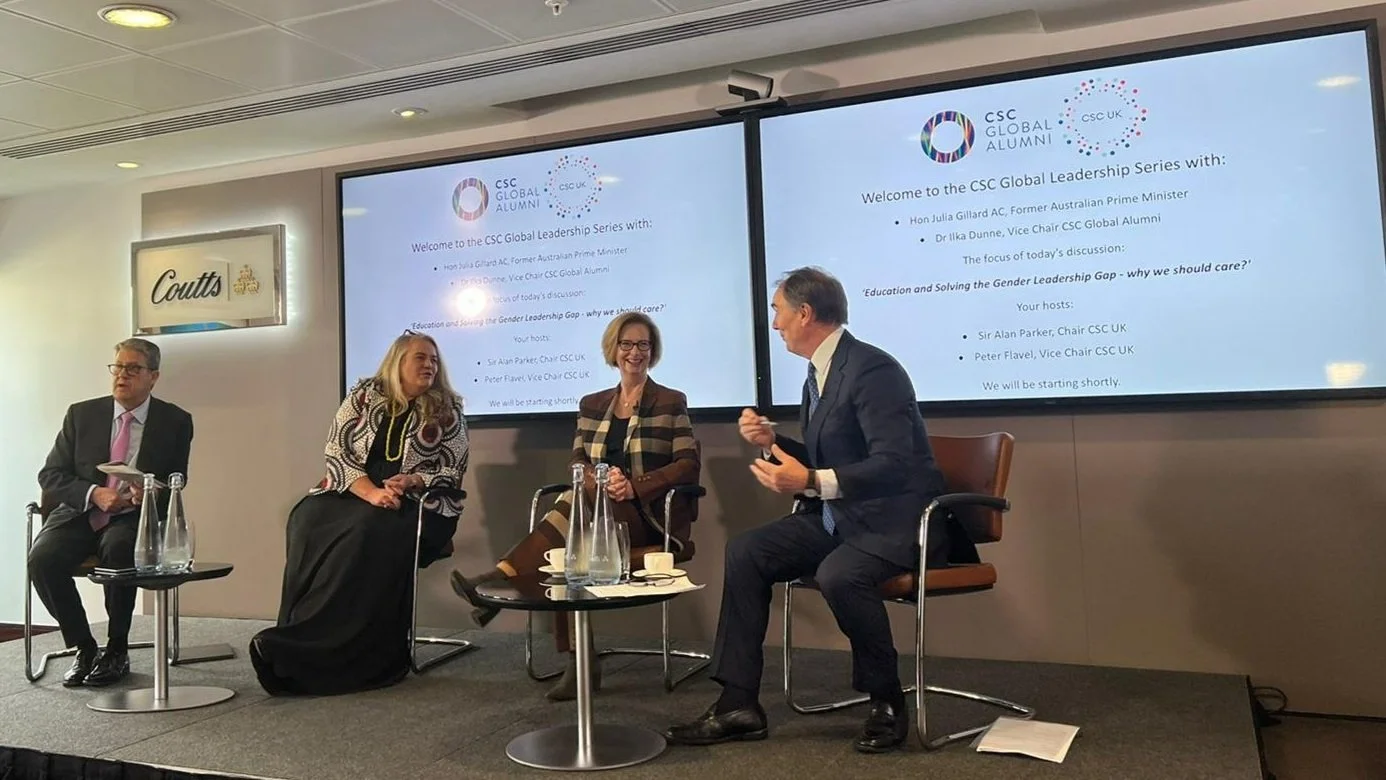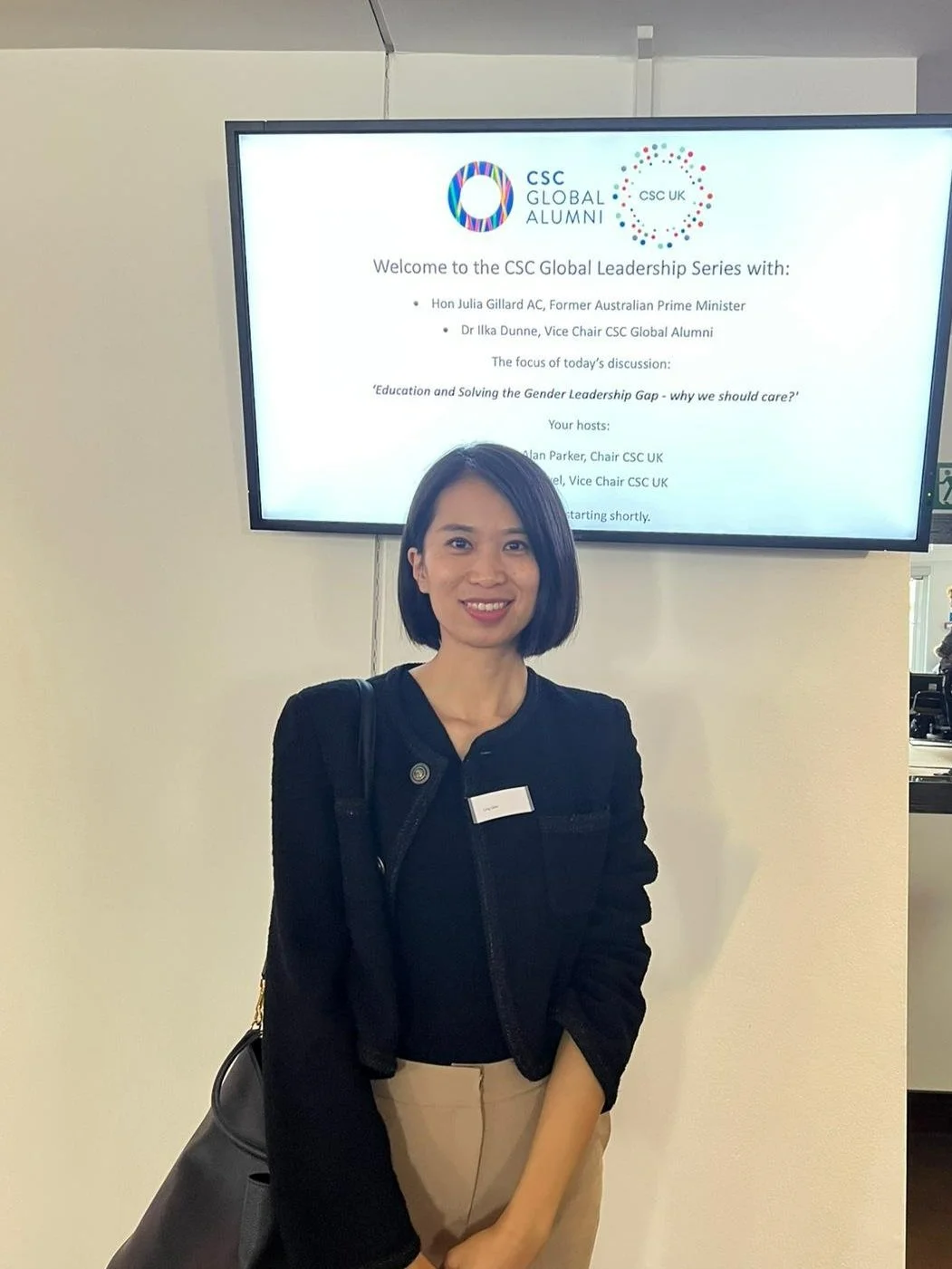The Commonwealth Study Conference in London
In October 2022, Ling attended the Commonwealth Study Conference (CSC) in London as a WHT scholar. The conference focused on how education can facilitate female leadership. The panelists included Julia Gillard, Australia’s first female Prime Minister, and Dr. Ilika Dunne, the Vice Chair of CSC Alumni and the initiator of the Female Leadership Program at Rand Merchant Bank (RMB).
Working in education for over ten years, I sometimes felt torn apart. While I personally endorse education as the true opportunity engine that ensures where you are from has no limit on where you end up, I feel powerless in front of the overwhelming trend that it is becoming commercialised under globalised neoliberalism. Or, in Bourdieu’s words, education, especially higher education, is an apparatus that reproduces elites. And I have to admit that, as an individual, I am powerless to mitigate, if not reverse, that trend.
This was my career dilemma before I came to Oxford. I never expected the very first study opportunity that WHT offered me to serendipitously resolve it on a philosophical level. At the conference, Julia Gillard shared her story and reflections on being a female leader. She narrated that the value of leadership lies in how it empowers individuals by mobilising them to achieve a common goal. In this vein, leadership fulfils two functions: influencing others and amplifying individual impacts. Her words ignited my reflection that, while I was in a leadership position, I never truly tried to influence people around me with the notions and values I held about education. While I was regretting the past, she inspired me enormously by referring to the fact that leadership can be practised both formally and informally. In other words, I do not necessarily need to be in a leadership position to influence others. Leadership can be both top-down and bottom-up. Interestingly, I have touched on these statements in my previous reading. However, I guess we all have that feeling that you can hardly internalise theories you learned on paper, because the amygdala, the major processing centre for emotions in our brain, is older and more sensitive than the prefrontal cortex, the region that modulates cognitive processes. To put it in a simple way, we need emotional resonance to help us truly internalise. That day, when Julia unfolded her reflections gently and determinedly, I got my ‘ah-ha’ moment, and those reflections were finally integrated as part of my inner agency.
Many thanks to WHT for nominating me to attend this panel. It really reinforced my inner agency and helped me stand in good stead in my future leadership position as an educator.



